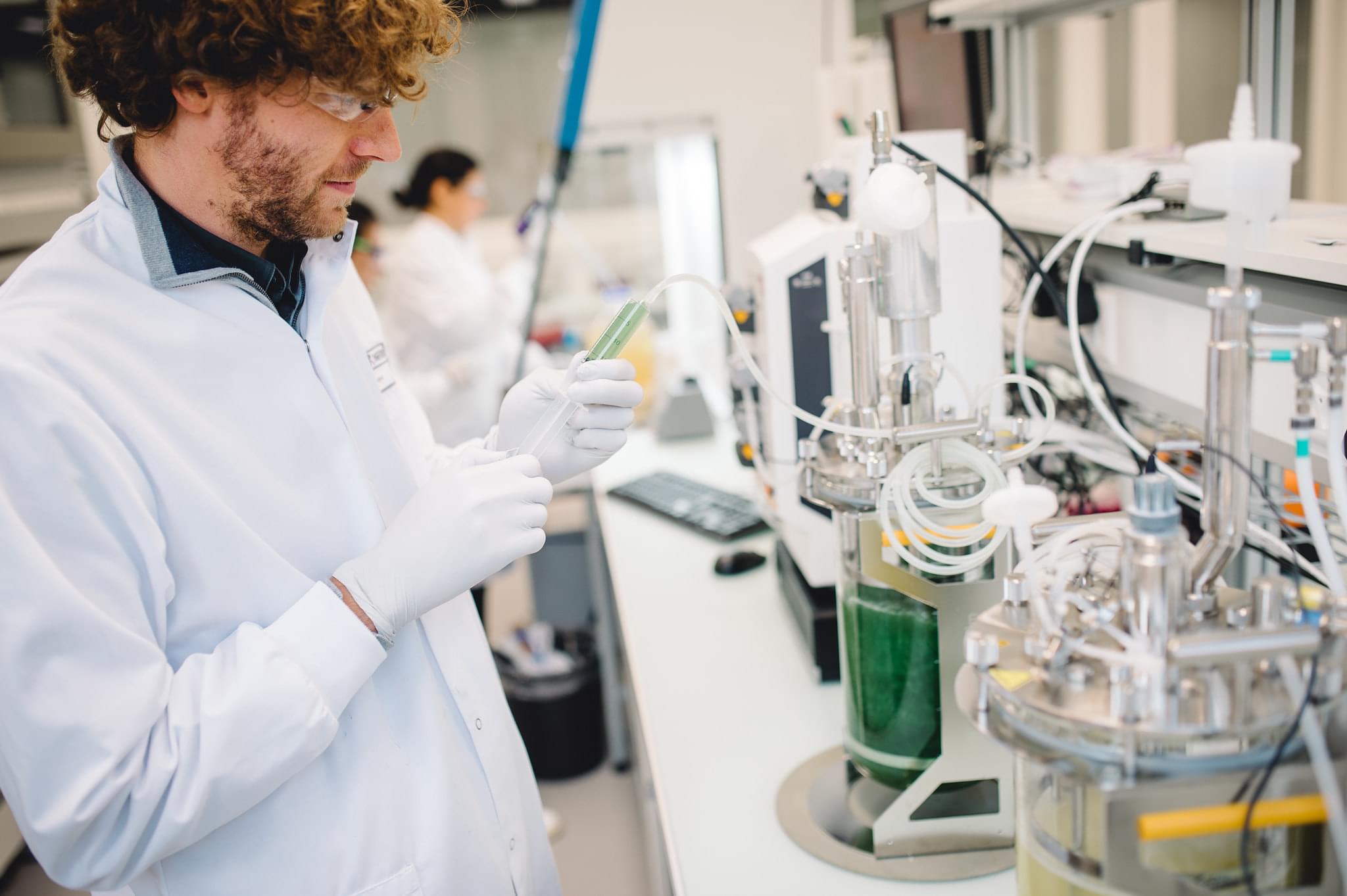Brevel says its microalgae will become the most popular alternative protein ingredient
Brevel founder Yonatan Golan says that in time, the microalgae his company makes will be the alternative protein ingredient of choice.

“The world is burning and we have to save it…This is the ultimate source of protein for the future.”
And he’s not just talking about this protein dominating the nascent microalgae ingredient space. Golan said it will eventually topple today’s standards: soy and pea. Those two ingredients, he said, have been major parts of the food system for decades. They’re widely cultivated with easy, inexpensive access, and food scientists have used them to create products for generations.
“The world is burning and we have to save it. Let’s find solutions,” he said. “Microscopic algae, compared to any other protein source, is just off the charts. …This is the ultimate source of protein for the future.”
Brevel’s microalgae protein ingredients, which it demonstrated at a tasting event last month at the Future Food-Tech conference in New York, come in powder form. There were two different versions: a yellow powder that Golan said had a 40% to 50% protein content, and an off-white powder with a 60% to 70% protein content. The powders tasted creamy, neutral and maybe a bit like cheese, tasters said — not the bitter or fishy taste commonly associated with microalgae.
Golan said the microalgae strain the ingredients are made from is already approved for consumption, so what’s holding Brevel back now is capacity. The company is building its commercial-scale pilot production facility in Israel now. The facility, slated to be up and running by the end of the year, will produce 120 tons of protein annually — enough for the ingredients to start getting into plant-based products.
Golan is not the only one that believes in Brevel’s potential. Last month, the company closed an $8.4 million seed investment round. Participants included FoodHack, Good Startup VC, Tet Ventures, Nevateam Ventures, Horizon2020 and Israel’s Innovation Authority.
Brevel is ready to charge forward with its ingredients and sense of purpose, Golan said, and he believes the company can both revolutionize alternative protein and food in general.
“We’re only now starting to scratch the surface of this huge opportunity,” he said. “To get into this opportunity, we first have to solve taste and cost, which is exactly what we do.”
Related news
Szeged researchers were the first to characterize the phosphate transport protein of green algae
🎧 Hallgasd a cikket: Lejátszás Szünet Folytatás Leállítás Nyelv: Auto…
Read more >100% plant-based Rama’s new butter alternative
🎧 Hallgasd a cikket: Lejátszás Szünet Folytatás Leállítás Nyelv: Auto…
Read more >More new products
NGM-VOSZ cooperation agreement for digital commerce security
🎧 Hallgasd a cikket: Lejátszás Szünet Folytatás Leállítás Nyelv: Auto…
Read more >The Hungarian Food Book is 50 years old
🎧 Hallgasd a cikket: Lejátszás Szünet Folytatás Leállítás Nyelv: Auto…
Read more >








